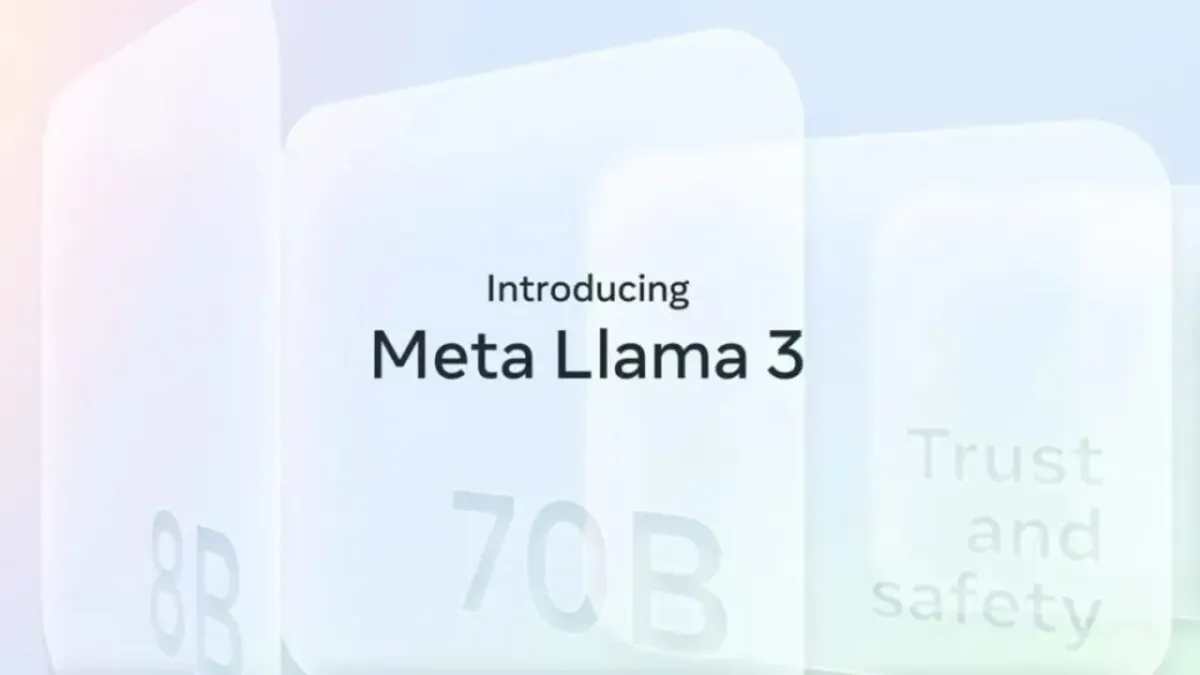Meta, formerly known as Facebook, has just launched the newest addition to its arsenal of open generative AI models: Llama 3.
Meta, formerly known as Facebook, has just launched the newest addition to its arsenal of open generative AI models: Llama 3. This latest release marks a significant advancement in the field of artificial intelligence, boasting two initial models in the Llama 3 family: Llama 3 8B and Llama 3 70B, with promises of more to come in the future.
According to Meta, these new models represent a major leap forward compared to their predecessors, the Llama 2 series, in terms of performance. With 8 billion and 70 billion parameters respectively, Llama 3 8B and Llama 3 70B have been trained on custom-built 24,000 GPU clusters, making them among the most powerful generative AI models available today.
In support of their claims, Meta points to the impressive scores achieved by the Llama 3 models on various AI benchmarks such as MMLU, ARC, and DROP. These benchmarks, although subject to debate, serve as standardized measures by which AI models are evaluated within the industry.
Llama 3 8B outperforms competing models such as Mistral 7B and Google’s Gemma 7B on multiple benchmarks, showcasing its superiority in areas including knowledge retention, skill acquisition, and reasoning capabilities. Moreover, Llama 3 70B demonstrates its competitive edge against flagship models like Gemini 1.5 Pro, excelling particularly in knowledge acquisition and problem-solving tasks.
In addition to quantitative metrics, Meta conducted qualitative assessments to highlight the enhanced capabilities of these models. Users can expect improved steerability, lower refusal rates, and higher accuracy across various domains, thanks to the utilization of a vast dataset comprising 15 trillion tokens, which is seven times larger than the training set for Llama 2.
Despite Meta’s emphasis on performance, concerns regarding data privacy and bias remain pertinent. However, Meta assures users that it has implemented stringent data-filtering processes and updated safety suites to mitigate these risks. Furthermore, the company introduces Code Shield, a tool designed to detect potential security vulnerabilities in generated code.
While the Llama 3 models are now available for download and powering Meta’s AI assistant across its platforms, their accessibility comes with certain restrictions. Developers are prohibited from using Llama models to train other generative models, and special licenses are required for app developers with a large user base, subject to Meta’s discretion.
Looking ahead, Meta reveals plans to develop even more advanced Llama 3 models, with capabilities spanning multiple languages and modalities beyond text. With a commitment to ongoing improvement, Meta envisions a future where Llama 3 sets the benchmark for large language models in the AI landscape.
As the boundaries of AI continue to be pushed, Meta’s Llama 3 stands at the forefront of innovation, promising a new era of generative AI with unparalleled capabilities and versatility.
